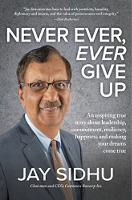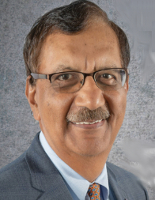
Image by fahribaabdullah14
Being authentic, always standing up for what is true and right, the equality of all human beings, and giving to others in need, regardless of their sex, religion, race, national origin, or creed, are the central tenets of Sikhism. It’s not simply a religion but a way of life. My commitment to these principles infuses every facet of my life, including my business relationships and leadership philosophy.
My parents were deeply spiritual, and every Sunday growing up, my family went to the gurdwara (a Sikh place of worship) not only to meditate and listen to God’s words but also to perform deeds of public service. Gurdwaras worldwide, not just in India, welcome anyone at any time. They also provided me with spiritual comfort, rest, and sustenance on several occasions during my hitchhiking trip long ago.
Hospitality and Service Above Self
Sharing food is a communal expression of hospitality, and my mother, and later Sherry, my wife, would prepare food that we’d buy or bring from home and help serve it at the gurdwara. A traditional vegetarian meal, langar, is served communally. Sitting on the floor and eating the same food symbolizes the equality of all people. It’s a beautiful, spiritual, and delicious experience! Even as a young boy, I felt a deep connection with Sikh rituals. Each day in India alone, Sikh gurdwaras feed about ten million people of all backgrounds.
In Indian culture, when people show up, either invited or uninvited, the hosts insist that everyone is fed. If you’ve ever watched a portrayal of or attended an Indian wedding, you’ve seen how elaborate it is, overflowing with food, music, and dancing. The joy and abundance are incredible!
Hospitality is just one of the many values that reflect Sikhism’s emphasis on sharing, giving, and helping others. To be truly meaningful, you must perform acts of loving kindness without expecting anything in return. The satisfaction of giving is its own reward. This concept is expressed by the word “seva,” which means “selfless service,” and perfectly encapsulates the overarching vision of Sikhism.
Seva’s meaning is echoed in the motto “Service Above Self” of the Rotary International Club, an organization that had a profound impact on me. I was an active Interactor and Rotaractor in high school and college and was grateful to be on the receiving end of the group’s generosity back when I traveled through Teheran as a kid.
I met with a group of Rotarian businessmen, and the owner of a bus company gave us free bus tickets to Istanbul. It was a much-appreciated gift on my journey to promote peace among nations.
Leaders Contribute and Inspire
I learned from Rotary International leaders and from other mentors that leaders contribute and inspire by their behavior and action, not by words and empty promises. Put another way, doing is more powerful than saying. My parents modeled the value of community engagement and philanthropy, and I’ve tried to instill my commitment to social action in my children, Sam and Luvleen.
Here’s the overarching principle by which I live my life and run my businesses: The best leaders are those who are the best human beings. They are emotionally, spiritually, and intellectually mature and fulfilled, whatever their definition of fulfillment or happiness may be.
Every year, our family would visit India to deepen our relationships with relatives and strengthen the children’s link to our culture and the importance of giving. In high school, Sam and Luvleen each planned and implemented impressive community service projects to positively impact Indians’ lives. Like my father and me, they learned the value of fulfilling a selfless mission.
One of Sam’s projects was developing a computer center for needy people at a time when computers were not readily available in India. With help from an uncle, he took the project from conception to implementation. By talking to locals, he identified the schools where he set up the computers. The program was a big success. While Sam was a student at Penn, he even took several Wharton School students and faculty with him to visit the centers.
Luvleen was interested in women’s health; she thought she’d go to medical school at one point but later decided to pursue business. In any event, she was deeply concerned about improving women’s health. She interviewed doctors who confirmed women’s medical care in India was woefully inadequate. Like Sam, Luvleen followed through on her vision and set up a four-week camp staffed by volunteers to address health problems.
Volunteering to Help Those in Need
As a family, we all became involved in a project inspired by my hitchhiking experience in Zurich. It’s amazing that my trip had such a lasting impression and motivated many of my adult activities! I remembered a park in Zurich littered with needles discarded by addicts. There are many such parks in Reading, Pennsylvania, and we enlisted as many volunteers as possible to help clean up the garbage throughout the city. Our entire family, including the children, participated.
The Sikh principle of volunteering to help those in need by doing good deeds is paired with the core value of charitable giving. Like many faiths, Sikhism advocates donating about ten percent of your income, and Sherry and I are committed to philanthropy. From day one of my job at First Valley Bank, I gave what money I could.
At that time, I learned about the United Way, a network of local fundraising affiliates. Always intellectually curious, I researched the organization and loved how it touches diverse local communities irrespective of religion, creed, caste, color, or gender. It’s an expansive program with a mission to promote education, financial stability, and healthcare.
One year, Sherry and I were very privileged to be asked to chair the United Way capital campaign, which enabled us to visit every United Way-funded organization and beneficiary. We also visited businesses, labor unions, and other entities to enlist their cooperation. This is what it means to be a leader in life and in business: to inspire others to collaborate and contribute to the common good.
I strongly agree with Winston Churchill’s statement, “We make a living by what we get. We make a life by what we give.” In addition to the United Way, I became involved in spearheading fundraising campaigns for a diverse group of organizations in my local community, including Kutztown University, the Boys and Girls Club, a homeless shelter, a home for battered women, the YMCA, the Hispanic Chamber of Commerce, the Jewish Community Center, the Indian American Society, and the Caron Foundation for addiction treatment.
Sherry is my partner in these endeavors. She is passionate about the Caron Foundation and actively participates in its various committees. Sherry’s degree in psychology and healthcare makes her particularly well-suited to the organization. She also serves on the boards of several community organizations.
Helping and Inspiring Others
My choice of diverse organizations is intentional; it’s fundamental to my belief that my job is to help anyone in need, regardless of background or status. I’ve received many honors and awards, but that isn’t my purpose. The plaques and trophies are not on display. I’m simply humbled to have received them. The more you contribute, the more personal satisfaction you receive.
As I’ve said, leadership is about living your values through your actions. I hope my life story demonstrates the enormous significance I place on education. Like my brother and cousin, I had long dreamed of coming to America to get the best possible business education, and I did! The MBA I earned at Wilkes University launched my career in finance. Both my children are Ivy League educated and made use of their educations to become business pioneers.
In keeping with my commitment to contribute to the community I live in, I’ve contributed to local colleges, including Kutztown University, Albright College, Alvernia University, Penn State, Lycoming College, and Reading Area Community College. Of course, the Sidhu School of Business and Leadership at Wilkes University is exceptionally dear to me. It gave me so much as a student, and I’m delighted I’m in a position to give back as a graduate. Further, Wilkes University holds special meaning because it attracts many first-generation American students.
Keep Learning Throughout Life
Continuing education throughout your life is of paramount importance. It’s easy to find learning opportunities; you don’t need to look far for exceptional programs. I’m very grateful for what I’ve learned at the Young Presidents’ Organization (YPO) and its forums, Dartmouth, Wharton, and Harvard Business School. Remember that learning is not limited to a formal classroom; you can learn anywhere from anyone.
And learn from your mistakes. I’ve made many, and I don’t beat myself up about them. I learn from them and move forward. I know I’ll make another mistake but, hopefully, it won’t be the same one.
The Qualities of a Good Leader
My personal and professional experiences have led me to think deeply about the qualities of a good leader. Great business leaders must promote a corporate culture that embraces the same principles that adults must embrace to be great human beings and to create healthy families. To be innovative, a company must focus on its people, collaboration, cooperation, and mutual trust and understanding.
Being a leader means having the responsibility for motivating and inspiring others. Also, I have the responsibility of demonstrating my philosophy through my actions. It means setting an example. To do so effectively, it’s necessary to cultivate your EQ or emotional intelligence.
Leadership requires the interpersonal skills inherent in respecting others, listening very carefully, taking their points of view into account, and communicating in a constructive manner. Great leaders are great human beings who have strengths in IQ and EQ, who are adaptable, and who are committed to continuous lifelong learning.
An additional attribute of a great leader is authenticity, to have empathy, be an active listener, be trusting and respectful, be there for others in need, and honestly say what you mean and do what you say. These principles were also behind my earliest leadership efforts when I spoke to Prime Minister Indira Gandhi, the Rotarians, and others to help realize my travel mission.
I’ve been honored to be invited to speak about authentic leadership, emotional intelligence, the future of banking, and business trends like artificial intelligence, technology, and electronic banking. I’ve made speeches all over the world, including in Dubai, Hong Kong, London, Prague, Sydney, and Delhi, and at Harvard, Wharton, and MIT, as well as several YPO universities and chapters in the US.
What do I talk about? Using my life experiences and stories, I discuss the many human qualities of a great leader I’ve mentioned above, including emotional intelligence, authenticity, humility, innovative thinking, hard work, respect, and the pursuit of self-improvement. And the number one quality is to be authentic and passionate about what you do!
I’ve followed my dream, and you can follow yours! We’re blessed to live in America, an exceptional country that still is the land of opportunity, where you can rise above humble beginnings and achieve great things. Where there are equal opportunities for all. Where you are valued based on your performance. I remain optimistic, despite the political divisions and government dysfunction that are infecting the US today. We have great gifts to give to our people and the world. We can and will return to fulfilling our pledge of “liberty and justice for all.”
How will America achieve its foundational principles again? Through exceptional leadership.
Copyright ©2023. All Rights Reserved.
Reprinted with permission.
Article Source:
Never Ever, Ever Give Up: An Inspiring True Story about Leadership, Commitment, Resiliency, Happiness and Making Your Dreams Come True
by Jay Sidhu How does a young man from India backpack across Afghanistan, Iran, and Western Europe, starting with just a hundred dollars in his pocket and make it to London and back? And then how does that same young man move to the United States with no money, connections, or friends, and end up a titan in the banking industry? Never Ever, Ever Give Up tells the American Dream journey of Jay Sidhu, and will inspire readers to follow their own dreams.
How does a young man from India backpack across Afghanistan, Iran, and Western Europe, starting with just a hundred dollars in his pocket and make it to London and back? And then how does that same young man move to the United States with no money, connections, or friends, and end up a titan in the banking industry? Never Ever, Ever Give Up tells the American Dream journey of Jay Sidhu, and will inspire readers to follow their own dreams.
Click here for more info and/or to order this paperback book. Also available as a Kindle edition and as a Hardcover edition.
About the Author
 Jay Sidhu is Chairman and Chief Executive Officer of Customers Bancorp, Inc. and Executive Chairman of Customers Bank. Jay was born in 1951 near Bamala, in the state of Punjab, which is the heart of India’s Sikh community. He emigrated to the United States in 1971.
Jay Sidhu is Chairman and Chief Executive Officer of Customers Bancorp, Inc. and Executive Chairman of Customers Bank. Jay was born in 1951 near Bamala, in the state of Punjab, which is the heart of India’s Sikh community. He emigrated to the United States in 1971.
Mr. Sidhu has been commended for his commitment to philanthropy and his community. He won the Richard J Caron Award of Excellence and received the Hero of Liberty Award from the National Liberty Museum. Sovereign Bank and Customers Bank were each recognized with Alvernia University’s CollegeTowne Award (formerly Pro Urbe Award) for their significant community service and contributions to a higher standard of living for the Reading, Pennsylvania. Wilkes University created the Jay S. Sidhu School of Business and Leadership in his honor.
He is the author of Never Ever, Ever Give Up. Learn more at JaySSidhu.com.
More Books by the author.xxx
























